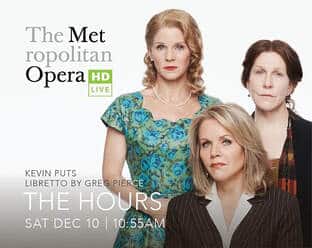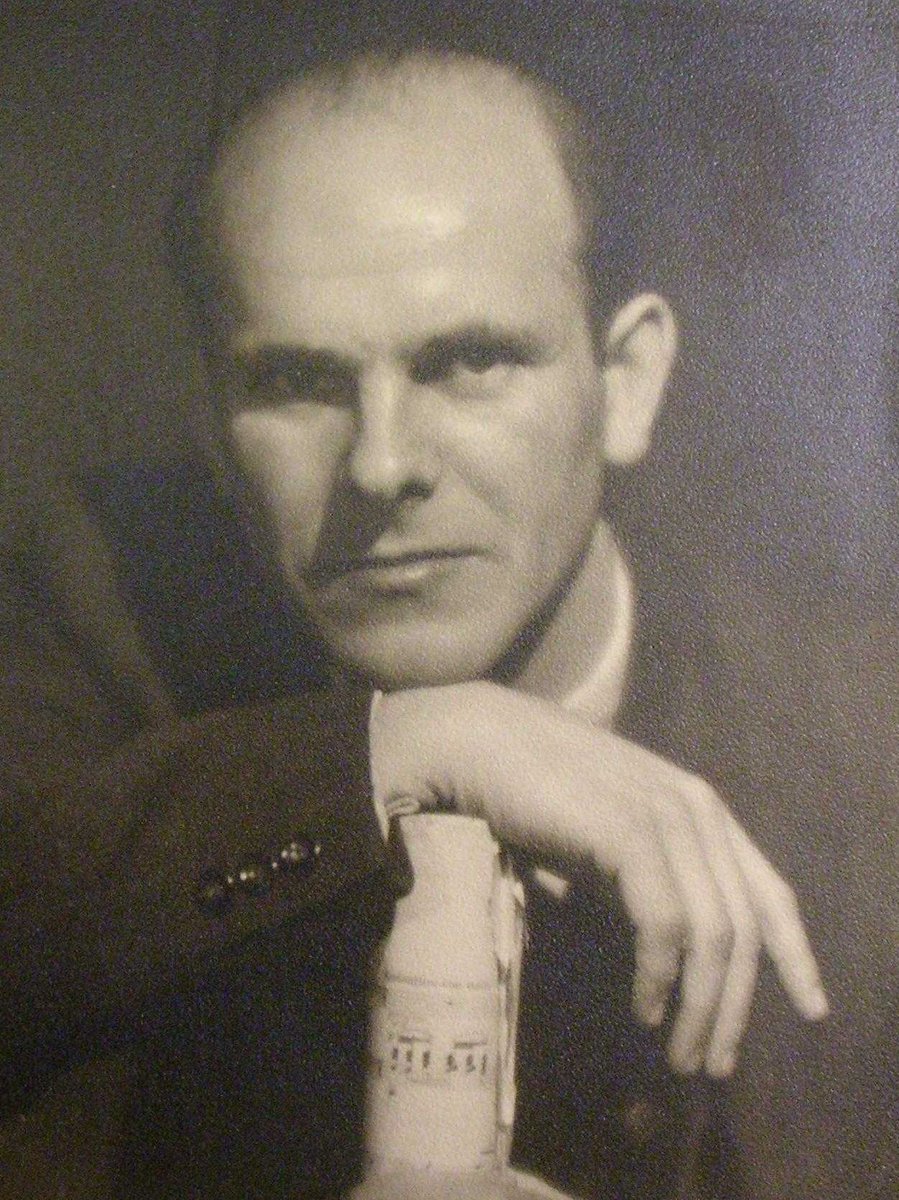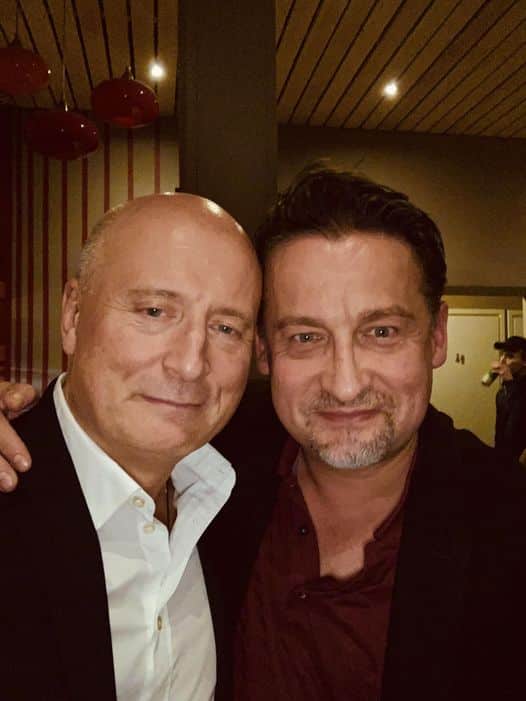Slipped Disc editorial: Vienna’s catastrophic error
mainSome months ago, the Austrian cultural minister Thomas Drozda told the general director of the Vienna State Opera, Dominique Meyer, that he would be required to reapply for his job.
Meyer, 61, must have wondered why, but he had been in post for ten years and he may have assumed that this was an obscure Austria regulation dating back to Habsburg times. A Frenchman who is fluent in German he’d had plenty of opportunities to observe the little quirks that make Austria that little bit different from any place on earth.
He duly reapplied for the job, expecting that, after ten years of record attendance – over 98 percent – vastly increased revenues and a progressive streaming policy, his reappointment for five more years would be a foregone conclusion.
When we met in London for tea a few weeks ago there were no obvious clouds on the horizon, other than the possibility that Austria would elect a fascist president, in which case Meyer assured me he would resign.
Drozda, however, had other ideas. A former business chief of Vienna’s Burgtheater, he was not so much a minister as a meddler. Drozda hasd also been director of the Austrian theatres association, a position which gave him overview of confidential information across the industry.
He decided – for reasons which he has not specified – to get rid of a tried, tested and extremely popular director of the Vienna Opera and replace him with a man from the record business who would not list personal charm and staff loyalty among his principal attributes.
Bogdan Roscic, an Austrian nationalised ex-Yugoslav, has never cast an opera in his life, or run a company on the scale of the Vienna Opera. He is as different from Meyer as plum slivovitz from premier cognac. Meyer gets things done by persuasion, Roscic by abrasion.
But the minister of culture has the power to chop heads. And in a year when an untested businessman was elected to the White House in preference to an experienced politician, Drozda may have decided that getting rid of Meyer was a trendy thing to do, going along with the zeitgeist.
From an objective perspective, it’s an unnecessary risk.
Meyer has been an outstandingly successful head of the Vienna Opera. He will go on to other, greater things. His successor will face resentment, suspicion and more than a little difficulty in assembling the stellar casts that Meyer could call in at the touch of a phone. Not unlike Donald J. Trump he may struggle to hire pedigree artists for his inaugural show. Today’s announcement is a bad decision by a weak politician.
Opera is the loser. Vienna Opera est perdita.

Queues outside the Vienna Opera last year awaiting first copies of Meyer’s season brochure





This assumption that the best slivovitz is in any way less sophisticated than cognac…
I would like to know what kind of Slivovitza did mr. jurnalist drink to let himself go trashing it and trying to use it as an example of something bad?
Indeed, it’s very relative. I clean my glasses with Hennessy (Maison fondée en 1765). Here, Slivovisz is only poured to visiting music critics.
Much better than your little Schoenberg joke a few days ago, JB!
I seem to have trodden on Schoenbergian toes. They are always very long.
Really, having to reapply for a third term of office makes Austria “that little bit different from any place on earth”? That´s the first time Austria is being criticized for following international standards.
An abrasive personality from the record industry with no experience coming to run an opera company, hmmmm where have I heard that before and look where it got the company. That company is now exploring selling the companies treasured archives to sure up their finances, it’s that bad.
I wana be a part of it ♪♫♪♫♫ NY NY!!!! ♪♫♪♫♫
The Vienna Opera is one of the few international grand opera houses that hardly exercise the notorious ‘Regieoper’, i.e. productions where the director imposes his own ideas on the work, mostly in flagrant contradiction to the intentions of the composer and often entirely undemining the work altogether. This careful strategy of giving the work the opportunity to unfold its own character as much as possible, did not result in routine but in, generally, much appreciated productions, for full houses, and acclaims for Meyer. In short: a demonstration of how opera can be truly successful, both artistically and financially, in modern times, by being very much itself. One would think that such obvious success would not stimulate a need to ‘do it differently’.
According to an article in the Wiener Zeitung, the new man wants to re-invent the institution, inspired by Mahler, whose famous phrase ‘Tradition ist Schlamperei’ was directed to the lukewarm and mediocre mentality of the forces he had to deal with. But now, the idea of Mr Rosic is: ‘Vorwärts zu Mahler’, thereby insinuating that the State Opera had been sinking to low routine level and Schlamperei and was in dire need of a genius who would put the institution back on the rails again. Without having any experience in opera production, Mr Rosic promises new ideas. Which new ideas would that be? More Regieoper? But that is a very old idea by now, and everybody knows that it chases away audiences, thus undermining ticket sales, which Mr Meyer has brought to almost 100%. Also, Mr Rosic seems to think that opera is under threat from the competition, probably is meant: other media like the cinema and internet, but in contrary it seems that opera has never been so popular as in these days, in spite of this competition – I think because opera offers a real, live experience, which is not offered by other media. It may well be that Meyer’s policies are the real, new idea that works best for opera.
This appointment invites for serious question marks.
http://www.wienerzeitung.at/nachrichten/kultur/buehne/863341_Wer-wird-Operndirektor.html
With Regieoper well and truly on the way out and the promise of new works that audiences can actually relate to, the future is not looking so grim right at the moment. I hope Vienna hasn’t just shot itself in the foot…
What are the “new works that audiences can relate to” that are promised?
OK that’s optimistic until it actually happens, but I have noticed a genuine desire for a new direction in my dealings with the Opera Houses here in Germany of late…
What kind of “new direction” is genuinely desired?
But that is not difficult to gues. Anything opposite of this:
https://www.youtube.com/watch?v=uS5-A61Ow4s
So that could be American musicals, or the opposite of THAT which is oldfashioned traditional opera like Verdi and Mozart (for that to happen, we need new Mozarts and Verdis, of course).
Do you really not know? Music written in our time that audiences don’t find incomprehensible. Music and drama they can relate to. Works that feature great melody, which was the most important and indispensable feature of the art-form in its golden age, and there is no good reason why it shouldn’t be again.
I usually enjoy Ligeti…but it needs to be in smaller portions, perhaps not a whole opera. Yikes!
Is Regieoper really on the way out? Please unpack that. Don’t raise any false hopes. 😉
OK goodness, let’s start with what we define as Regieoper and my real objection is to the ‘race to the bottom of inappropriateness’ stuff which JB also described above. For example my pet hate would be the Herheim Parsifal, but I haven’t personally seen one of those for a while. I was at the Deutsche Oper Lohengrin on Saturday and got talking with a whole bunch of German regular Opera goers and they were all saying the same thing. Audiences were just fed up and so the houses really had to take notice. One guy was telling me it’s getting a lot easier to buy tickets for Bayreuth these days (I wonder why?).
And yet, that very Lohengrin radically changed the storyline, but in a way that did not totally contradict the composers intentions. It was brilliant. Should I give it away? The production emphasises the fact that the whole thing takes place in a time of war. Which is of course exactly right. The little boy returns at the end as always, but this time as a corpse. So everything past ‘In Fernem Land’ takes on a very powerful new meaning but it’s not at all inconsistent with the text. Regieoper? Perhaps, but not as we’ve come to expect it…
Facist president? This is plain bullshit. He is far left ie compared to the american democrats! So if Meyer told you to eventually resign, now I am happy he got kicked out of Vienna in advance.
Norbert Hofer on the “far left” compared to – well – anyone? I sincerely doubt it …
You got that right.
Read more attentively, Flojoe.
“When we met in London for tea a few weeks ago there were no obvious clouds on the horizon, other than the possibility that Austria would elect a fascist president, […]”
Meyer wasn’t talking about current president Alexander Van der Bellen, but about his contender during the election, the FPÖ’s Norbert Hofer.
In short, Meyer said he would resign if Norbert Hofer became president.
I was talking about Hofer. Thanks for your comment….
I didn’t realise that you were referring to Hofer. Most probably wouldn’t classify him as representing the ‘far left’.
Wien, Wien, nur du allein…
Ja, genau.
Since when have high ticket sales been the sole definition of success in the arts? Whatever happened to artistic excellence?
The truth of the matter is that the Staatsoper has become little more than a Trip Adviser attraction in Vienna in the manner of the Saengerknaben and Sacher torte.
Musical standards at the opera, especially in the orchestral playing, have been deteriorating for many years – generally as a result of absurdly short (if any) rehearsal time.
The only ‘name’ conductors in the 16-17 Season were Dudamel for Turandot and Mehta for Falstaff. The days when Boehm, von Karajan, Kleiber, Muti, Abbado and Bernstein shared Mahler’s illustrious podium have long since gone.
The Wiener Staatsoper definitely needed a shake up but whether another recording industry person with no experience in running an opera house is the person to do it is another matter.
Difficult to believe all of that.
To begin with, the time when there only were a handful of ‘great conductors’ – the oldfashioned, authoritatian type – as a platoon floating above a sea of mediocrities, has long since passed: general artistic standards of both orchestral playing and conductors have never been as high as today, and ‘unknown conductor names’ are often surprisingly good. I hear from Viennese friends, experienced opera fans, that the general level of performance at the Staatsoper has been excellent over the last decade, with increasing popularity especially among the Viennese audience. Ony a small part of the audiences are tourists, the bulk is the locals, who cultivate ‘their’ opera like an iconic place, comparable to the Musikverein. To call those places mere tourist attractions is just ignorant sneering.
Restricted rehearsel time for the orchestra is a general problem not only in opera, but everywhere, due to the expenses of rehearsing that have increased quite much, which is regrettable and which influences repertoire choices. More money for rehearsel time would be great, at any orchestra, but that also means that the type of production should not negatively influence ticket sales. If we had more rehearsel time for the orchestra, and reduction of productions (a logical result of such measure), combined with ‘new ideas’ that reduce ticket sales, we end up with excellently played modernist works with gags, flash lights and gadgets on stage for half-empty houses, which will require much more money than is spent today.
I resent the suggestion that a great, great conductor like Carlos Kleiber was “old-fashioned” or “authoritarian” floating on a sea of mediocrity. Absurd comments.
As director Otto Schenk has eloquently put it: “The maestros don’t sing anymore; Kleiber did”.
I was at a production of “Alcina” in 2011 at the Vienna State Opera, when I was living in Vienna, and started talking to a seasoned opera-goer aged about 33 who was sitting in the box next to me. He said, “this is the first time a French person has been head of the VSO and this is why Musiciens du Louvre/Minkowski is in the pit tonight”. The man went on to explain the workings of the VSO and his experiences of the operas. We talked all the way home on the train about it.
It occurred to me how closely music-lovers follow the important appointments in Vienna and how actively engaged they have always felt with regard to who gets what. Same at the Musikverein. To speak of Viennese music-lovers as refugees out of Trip Adviser is stupid ignorance. I wouldn’t want to be the person standing between a seasoned Viennese music-lover and their sense of significance when decisions are made about appointments.
I did not think about Kleiber who belonged to the absolute top of all time…. I was more thinking of Böhm, Karajan, and Toscanini. Carlos Kleiber belonged to a younger generation.
I regularly listen to / watch this unforgettable video:
https://www.youtube.com/watch?v=vPNDjiem27M
I’m very pleased to hear it. I’m researching him for two lectures in March and have read everything, watched everything. He was mesmerizing. You might enjoy this:
https://www.youtube.com/watch?v=Ta8Tqjn7Suo
In may ways his is a sad story of depression, insecurity and perfectionism.
That’s all magnificent but holy crap-The last movement of the Brahms is simply out of this world. Oh to have been there for that!
We have always found Vienna State Opera the most welcoming of opera houses – examples that spring to mind vary from the approachable and helpful box office and cafe staff, to their streaming of operas for viewing at home. We particularly enjoyed Irina Brook’s Don Pasquale recently – a totally delightful production – and hope that the change of management will not mean a change of policy.
Mr Borstlap clearly does not live in Vienna and is relying on second hand, and it would seem, seriously flawed information.
I have been a regular Staatsoper attendee since 1975 and can testify that the routine, unrehearsed performances which now occur on this stage are for the most part, definitely not ‘excellent’.
Further, the allegation that ‘only a small part of the audiences are tourists’ is similarly spurious. Internet ticket sales records clearly confirm the provenance of ticket sales. And if that isn’t enough, the proliferation of selfie-sticks, foreign languages in the foyers and inappropriately casual attire provides eye-witness evidence of the lack of locals.
Like the once elegant Opernball, the house has essentially been abandoned by the Viennese (with the exception of vulgar Trump-ish publicity hounds such as Richard Luger) and it is now the preserve of tourists and the disparate nouveau riches. In 1978 the Opernball Guest of Honour was the King Juan Carlos. In 2011 the principal attraction was Ruby the Heartbreaker.
If Mr Borstlap is not prepared to take my word for the serious decline in standards in the Haus am Ring, he should ask any member of the Staatsoper orchestra. The number of substitutions which occur in any given performance is scandalous and would certainly never have been tolerated under Ion Holender and inconceivable under Egon Seefehlner.
By ‘tourist’ Jonathan Sutherland seems to imply anyone who does not live in Vienna. That’s rather harsh!
Yes, there are tourists at the Vienna State Opera the same as there are at the Konzerthaus, Musikverein and Theater an der Wien. But these venues are still heavily supported by the Viennese establishment because I’ve spoken to many of them myself and the same faces would appear at the performances. I attended a huge number at each venue (except the opera, where I could only get a ticket to “Alcina”). The subscriptions for the Wiener Philharmoniker can involve a 13-year wait!!
And from their etiquette at these performances it became clear to me that they knew which way was up! (Only the Japanese offended with their intrusiveness and endless flashing cameras.) It was a pleasure to be there.
And, by the way, the members of the Wiener Staatsoper orchestra are one and the same as those of the Wiener Philharmoniker.
Agree about the comments on the Opernball, though. The women of Vienna told me how this, and the other balls, had been reduced to a much lower standard of clientelle than had formerly been the case years earlier. In 2011 Berlisconi’s piece of crumpet was there as a ‘celebrity’ and this year (you’ll see it on U-Tube) Brooke Shields turned up on the arm of some aging lothario/famous Austrian multi-millionaire. Look at the U-Tube clip and you’ll see some women chewing gum!!
Next time I will be in Vienna I will ask an orchestra member. (By the way, the orchestra in the pit is not entirely the same as the VPO.) Indeed my information was second-hand, including from a staff member. I still find it hard to believe that standards have gone down that much. But well, approval/disapproval is in the ear of the listener.
But many of the musicians belong to both orchestras – in fact, you have to have played in the Staatsoper orchestra to belong to the VPO. I cannot imagine those musicians wanting to play in an orchestra with shoddy or declining standards. No way.
They do need to do something about that extremely rude man in the box office, though. I arrived there one day to buy a ticket and the man literally slammed the door shut in my face with a “closed” sign on it!! Not a flicker of recognition that a human being was standing in front of it.
I have been told that this very man suffered from a rear end rash for years, due to his job position, and got to dislike classical music over time.
I am not an expert, just a person with an abiding love for opera, sparked in me by my parents from the age of around five, way back in early 1950s Budapest.
That abiding love has, on occasion been sorely tested by what several of you identify as Regieopera, a term I have only just got familiar with. I do hope that it is a practice which will get eradicated. In my opinion, unilaterally changing the original concept, often almost beyond recognition, of the masterworks of legendary composers and librettists is nothing less than artistic sacrilege. Furthermore, it is also a form of plagiarism. And, very, very bad theater.
The sooner it stops, both in Vienna and elsewhere, the better it will be.
I have been to the opera only once here in Vienna. It was a nice experience. Had the journalist kept to the subject at hand I might have tended to side with him. But instead he made it all about Trump and Hofer. I think I now welcome the new director. These days, whenever the press tells you to zig, I zag.
“Kyrie eleison”
Looking at the calendar, the orchestra are often playing something different every night for 5-6 nights. I can’t believe it is played to a particularly high standard if this is the case; they will only have time for a quick run-through in the afternoon before the next performance (and many times they also seem to be booked for something in the afternoon too). This also makes it difficult (and expensive) to hire in singers, since they usually want a run of performances (as does the conductor).